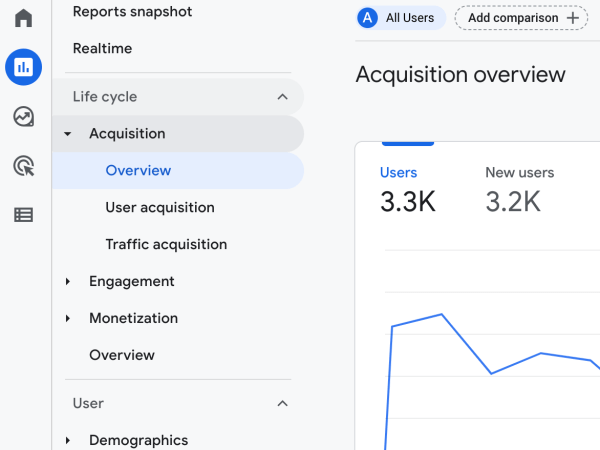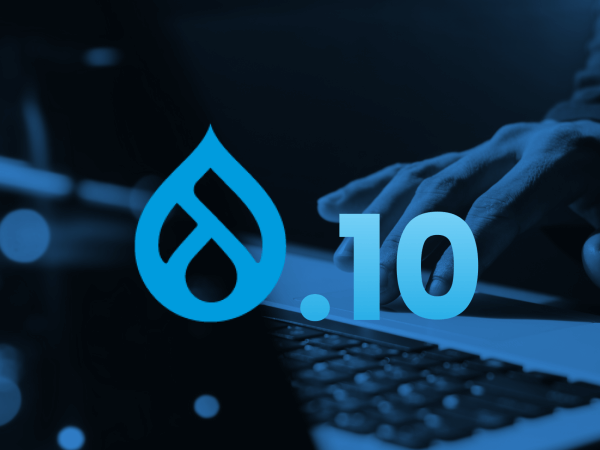If your web application is central or integral to your organization’s success (and especially if your role is pivotal in developing and working with said application), read this article.
Given the proliferation of cheaper software engineering options flooding the market these days, is it time to re-evaluate your organization’s technology costs? Well, consider Boeing’s massive gamble - and how it ended up working out for them.
Now, re-evaluate your organization’s tech costs.
Do you still see as many options? You shouldn’t… and here’s why.
Having been in the software engineering industry (i.e. web application development and digital solutions strategies) for many years now, we have seen significant growth in non-US-based companies advertising “comparable” services priced substantially lower than US-only agencies. Even more insidiously, we’ve seen a trend toward digital agencies presenting one (or several) US-based location(s) as “fronts” for an entirely (or almost entirely) offshore-based workforce. It’s only natural for organizations to want to give serious consideration to such potential options… and it’s all-too-easy to fall prey to agencies trying (very hard) to present themselves as US-based agencies.
We have seen the same scenario play itself out over and over throughout the years… A national or multi-national organization (the US government is fairly well exempt from this issue, as almost all government contracts specify all software engineers (and other staff) must be exclusively US-based) will go in-search of a digital solutions agency to develop a new platform or work on building out an existing project. Lucky you - you’re tasked with finding the right agency at the right price. A number of seemingly qualified agencies will be considered for the work. Eventually, a service provider is chosen and work commences.
Some time later in the project (perhaps, several months or more), milestones begin to be missed, functionality becomes problematic, responsiveness of the agency slows to a trickle and that original budget which seemed so attractive initially has not only been exceeded but is continuing to grow due to “unanticipated issues” and code quality deficiencies. Ultimately, a more experienced agency (such as Thinkbean or one of our few peers) is called in to bring the project to some semblance of a successful conclusion.
In our industry, the above referenced scenarios are termed “rescue projects.” The plain fact is: There is no substitute for knowledge and experience. Code is not code - the same way a surgeon is not a surgeon. Just because someone completed medical school (somewhere in The Caribbean) and can now be, legally, called a surgeon in the US doesn’t mean they’d be an appropriate choice for your liver transplant procedure.
I’ll bet if (heaven forbid) you needed a liver transplant and you had the choice between having a surgeon with two years of experience at a Baylor University Medical Center in Dallas perform the procedure (ranked one of the worst hospitals in the US for organ transplants) or a surgeon with 20 years of experience at Mass General Hospital, your choice wouldn’t take very long to consider.
Both hospitals perform liver transplants. Both hospitals have surgeons with the same titles. Both hospitals are even based in the US. The one little difference is - patients undergoing transplant procedures at MGH have a much higher rate of survival. The point being - if your web-based application is crucial to the survival of your organization, make certain your project is “on the right operating table”, so-to-speak.
One of the biggest challenges facing a person or team tasked with overseeing a web-based project is how to go about deciding which agency is the right one for the job. After all, you and/or your team are (likely) not digital solutions experts. Even more likely, you’re not Drupal experts. So, how can you be expected to make the most appropriate choice for your organization’s project? Well, there are ways.
The following five items will point you in the right direction:
#1 Choose a Specialist
There are a plethora of agencies out there which claim to have competency with multiple platforms (e.g. Drupal, WordPress, ASP.NET, etc.) That’s your first and best indicator they are a “jack of all trades, masters of none”. Different parts of the human anatomy operate very differently from each other. That’s why you’ll never see a doctor who specializes in (as example) neurosurgery and shoulder replacement. Web platforms are very similar. One platform may, very well, work very differently than another. Choose a partner who truly knows your platforms intricacies.
#2 Choose an Agency with Excellent References
Specifically from organizations related to your own in terms of size and project complexity. Just because “Agency A” did a great job on a project for Joe’s Natural Gas Pipeline Products of Minneapolis does not mean they’ll be up to the standards of your organization’s multi-national rig platform suppliers.
The same principle applies across all industries.
#3 Try Before You Buy
You don’t want to wait until you need a major job done to go looking for the right agency. If you have smaller projects at-hand, try giving agencies which pass the “sniff test” a smaller contract or two to complete. See what it’s like to work with that agency. Find out if they deliver quality work, as promised, when promised. Get a feel for what it’s like to work with the agency and determine if you and your team work well with the agency personnel. The middle of a six or seven-figure project is not the time to find out the chosen agency has issues your organization can’t live and/or work with.
#4 Avoid Fixed-Bid Agencies!
This doesn’t mean the work your organization needs to have done can’t have a known budget. Not at all. Any agency worth its salt can give an accurate quote as to how much a given job is going to cost… but there’s no way to reasonably know that amount until there has been a formal Discovery phase. Asking an agency to provide a fixed-bid price for a project without having examined the Discovery information is akin to asking a surgeon how much it will cost to fix your broken shoulder without the surgeon having given you a thorough exam and looked into what, precisely, is wrong with your shoulder and what might be the best way to repair it.
#5 Ask if the Prospective Agency is Willing to Perform a
Formal Discovery, Separate from the Project at Hand.
Good agencies will even be willing to perform a Discovery phase and offer to exclude their own agencies from bidding on the ultimate project. The agency gets a bit of work and your organization gets a thorough set of documents which can then be taken to any good agency for a highly-accurate estimate. Additionally, it will help minimize the amount of back-and-forth/further questions needing answers from the prospective bidders.
In terms of value for your dollar, you’ll receive exponentially greater returns on your investment from an agency which charges $300/hr and gets the job done (properly) in three hours than you will from an agency which charges $100/hr and gets the job done (hopefully, properly) in nine hours. It seems like simple and logical economics - and it is.
However, you’d be amazed at how often such seemingly fundamental thought processes are omitted from the hiring decision.
Take the time to have a conversation with your prospective agencies. Most people have pretty good built-in BS detectors. You’ll be able to tell, perhaps, more easily than you might have expected, if someone is speaking from knowledge and experience or if they’re giving you a lot of baloney…and don’t be taken in by someone throwing out a lot of technical terminology.
When your doctor talks with colleagues, he/she uses technical lingo for purposes of precision. When your doctor talks directly with you, he/she uses layman’s terms (to the extent possible) to describe your situation and prospective treatment options. While there’s nothing wrong with using techno-speak at appropriate times in a conversation, there’s only one reason to use lots of big, fancy, tech-terms with prospective clients - to obfuscate the conversation and make oneself sound as though they know more than they really do.
Albert Einstein once stated something to the effect of “If you can’t explain it to a five-year-old then you don’t understand it, yourself.” We believe that applies to all experts in all fields - and we always do our best to help prospective clients understand what is needed and why it is needed. We expect the same level of competency from all our staff - which is why Thinkbean only hires senior level engineers and strategists. Nine out of ten applicants to Thinkbean are rejected due to unacceptable competency levels in their specific areas of “expertise”.
We demand a lot from our staff - because our clients demand a lot from Thinkbean. So, the take-away from this whole article is: Caveat Emptor (let the buyer beware). If your digital strategies and web applications constitute a significant part of your organization’s revenue streams, do your research, follow the numbered pointers (above) and expect to get services commensurate with your budget.
After all, the saying "You get what you pay for" isn't always true... but (we believe our clients would agree) this is one of those times when it is actually true... and that's, actually, a comforting thought when your organization's business, reputation, etc. is at-stake.
- Log in to post comments



